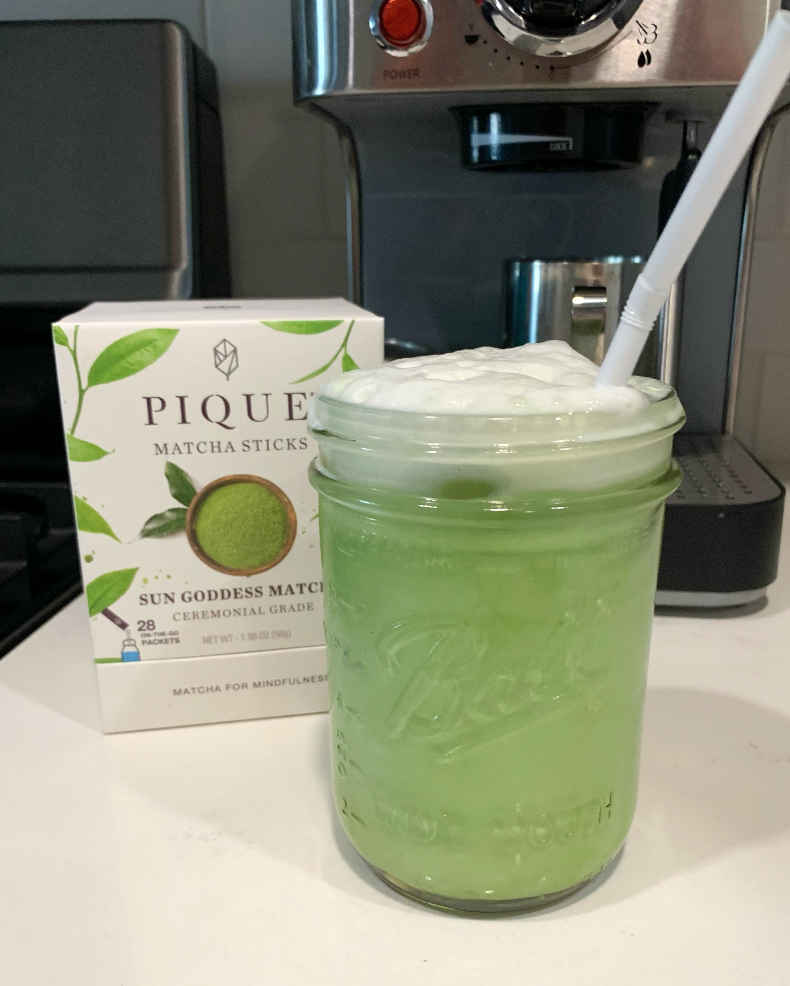When I was in college, I worked at a coffee cart on campus for over a year. It was my first time ever working in the food service industry, and for that matter, it was my first time ever making coffee. Before that, the only coffee I ever drank was calorie latent grande caramel fraps with extra extra caramel. So, basically, I did not like coffee very much. However, that changed once I started working at the coffee cart. When working at the coffee cart, I tried almost every coffee drink imaginable and created my own concoctions even. After that, I became obsessed with coffee. So obsessed that I can drink iced coffee black.
Then, law school happened. Coffee wasn’t enough to keep up with all of my readings. So, I moved to espresso. By the time I finished law school I would have a pot of espresso a day. My body got so used to the caffeine from coffee, I kept needing more and more to function and get by throughout the day. When I started working at my law firm, I decided enough is enough, and I quit drinking coffee cold turkey. When I did this, I honestly thought I was going to die. I had massive headaches for two weeks straight and at around 3:00 PM each day, I could not keep my eyes open. I finally adjusted after about two months.
Don’t get me wrong. I still enjoy coffee. I love a good occasional cappuccino or espresso martini, but I am so thankful that I am no longer dependent on coffee to function. Also, whenever I do have coffee, I make sure it is organic. A previous blog post discusses why you should choose organic coffee when you do decide to have coffee.
Also, I recently have discovered an alternative to coffee that I think is even better when done right. That alternative is matcha. Matcha is a Japanese green tea powder made from finely dried green tea leaves that are ground into a powder.
So, why is matcha so much better than coffee? Here are the reasons why:
- First, matcha contains the amino acid, l-theanine, which gives matcha a umami flavor. And, who doesn’t love that? It just tastes so good. It’s real claim to fame though is that it goes straight to your head and causes a relaxation effect. It helps with headaches because of that and can help reduce anxiety and stress, as well. The other plus side of l-theanine is that is that it stimulates the release of serotonin, GABA and dopamine, which helps balance the effects of the caffeine in matcha.
- Second, matcha has about almost one hundred milligrams of caffeine in one cup, which rivals a cup or two of coffee. So, you are not missing out on any caffeine by drinking matcha instead of coffee. You are still getting a good amount of caffein in each cup.
- Third, Matcha has tons of catechins, which contains antioxidants, flavonoids and phytonutrients. Matcha has more than other teas since you consume the entire leaf, and this helps prevent cell damage and chronic disease. They also all help slow the absorption of caffeine in the bloodstream. This means that you have a longer supply of caffeine in your body at smaller intervals at a time instead of a quick jolt of all of the caffeine at once like with coffee. This helps you focus more and not have such a quick peak and high and hard drop and low after the caffeine wear off.
- Fourth, matcha has one of the highest amounts of EGCG in it. EGCG can help prevent aging by healing our cells, restore vitamin c causing increased collagen production, and lessen brown spots on the skin. It also helps defend against the negative effects of UV radiation on the skin and helps prevent the anti-inflammatory responses our skin produces when exposed to the sun without UV protection. So, you are lessening your brown spots and preventing new ones from coming. This reason sold me on having matcha.
- Fifth, matcha contains chlorophyll, and chlorophyll is high in vitamins C, A, E, and K. It can help heal damaged acne latent skin and aid healthy skin in eliminating toxins and other pore clogging bacteria and oils. All of this means less acne!
One important thing to note is that you should be very careful when you choose which matcha to consume. Matcha is shaded before harvest, and the leaves are harvested in whole. Then, the leaves are ground into a powder. So, you consume the entirety of the matcha leaves when you have your matcha latte or tea. Because you do consume the leaves, it is important that you buy organic matcha. Otherwise, you are directly consuming whatever pesticides and chemicals were on the leaves to grow the matcha that was harvested and consumed by you, and you likely are not getting all of the above benefits form the matcha either since those chemicals and pesticides could remove all of those lovely benefits. Also, a lot of people worry that matcha can contain lead if it’s not organic and ceremonial grade. Because of all of this, I choose to buy pique tea sun goddess organic ceremonial grade matcha.
Here’s to being well preserved.
Always,
Taylor







